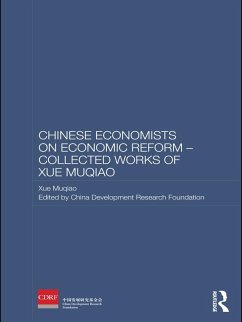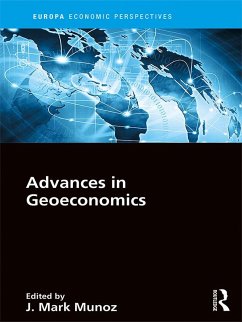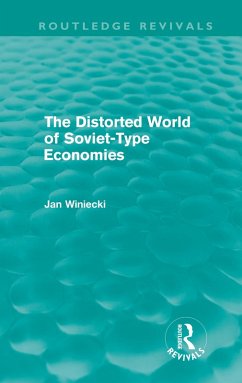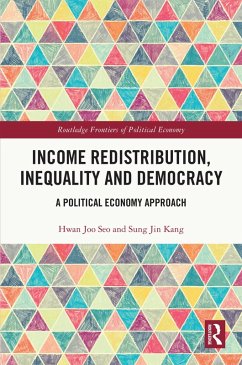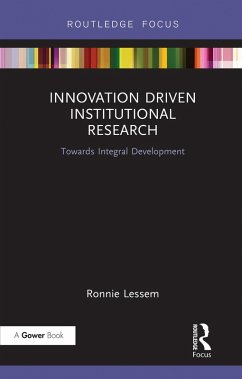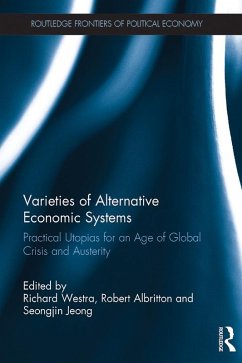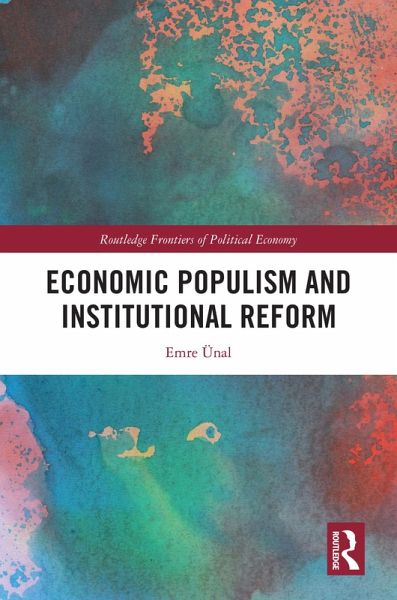
Economic Populism and Institutional Reform (eBook, ePUB)
Versandkostenfrei!
Sofort per Download lieferbar
42,95 €
inkl. MwSt.
Weitere Ausgaben:

PAYBACK Punkte
21 °P sammeln!
In response to the global crises in recent decades, many countries - both developed and developing economies - have resorted to populist forms of economic policy instead of undertaking meaningful institutional change.This book explores two forms of economic populism in particular (wage populism and exchange rate populism) and demonstrates that these types of policies result in high inflation, unstable exchange rates, and chronic macroeconomic problems. The book opens with an elucidation of the institutional economics approach - drawing on Commons and Veblen, and foregrounding laws, rules, norm...
In response to the global crises in recent decades, many countries - both developed and developing economies - have resorted to populist forms of economic policy instead of undertaking meaningful institutional change.
This book explores two forms of economic populism in particular (wage populism and exchange rate populism) and demonstrates that these types of policies result in high inflation, unstable exchange rates, and chronic macroeconomic problems. The book opens with an elucidation of the institutional economics approach - drawing on Commons and Veblen, and foregrounding laws, rules, norms, regulations, religions, and traditions - which sheds particular light on economic populism. The book also explores the different forms of economic populism that have been seen throughout the world including policies in the United States, Brexit in the United Kingdom, the response to the Yellow Jackets in France, the populism of various countries in Latin America, and regulations in China. Delving deeper, two case studies are explored in greater and comparative detail: Argentina and Turkey. In these countries, which have followed similar patterns, it is shown how following a path of economic populism has prevented the much-needed institutional reforms from being enacted. The book argues that adopting populist economic policies may prove popular in the short term but prevents and ignores the longer-term project of institutional reform, which is needed to provide greater stability. Finally, the book also looks at the types of institutional and policy reform that may be required to prevent economic populism from taking hold.
This book will be of interest to readers in economics, political economy, politics, and other social sciences who are grappling with issues around populism in all its forms.
This book explores two forms of economic populism in particular (wage populism and exchange rate populism) and demonstrates that these types of policies result in high inflation, unstable exchange rates, and chronic macroeconomic problems. The book opens with an elucidation of the institutional economics approach - drawing on Commons and Veblen, and foregrounding laws, rules, norms, regulations, religions, and traditions - which sheds particular light on economic populism. The book also explores the different forms of economic populism that have been seen throughout the world including policies in the United States, Brexit in the United Kingdom, the response to the Yellow Jackets in France, the populism of various countries in Latin America, and regulations in China. Delving deeper, two case studies are explored in greater and comparative detail: Argentina and Turkey. In these countries, which have followed similar patterns, it is shown how following a path of economic populism has prevented the much-needed institutional reforms from being enacted. The book argues that adopting populist economic policies may prove popular in the short term but prevents and ignores the longer-term project of institutional reform, which is needed to provide greater stability. Finally, the book also looks at the types of institutional and policy reform that may be required to prevent economic populism from taking hold.
This book will be of interest to readers in economics, political economy, politics, and other social sciences who are grappling with issues around populism in all its forms.
Dieser Download kann aus rechtlichen Gründen nur mit Rechnungsadresse in A, B, BG, CY, CZ, D, DK, EW, E, FIN, F, GR, HR, H, IRL, I, LT, L, LR, M, NL, PL, P, R, S, SLO, SK ausgeliefert werden.





